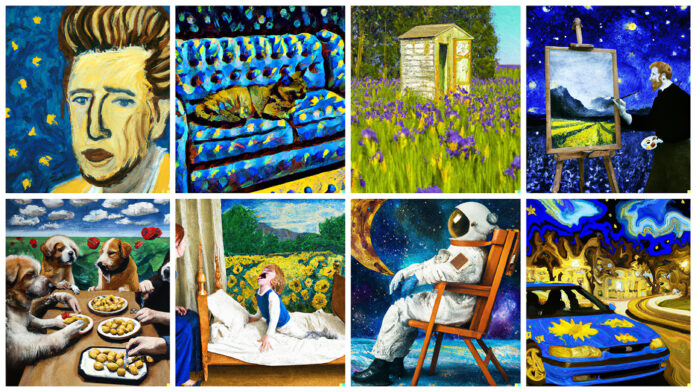San Fransisco, CA — In an unexpected turn of events, the estate of the famous artist Vincent Van Gogh has announced that they are suing OpenAI, the artificial intelligence research laboratory, for a staggering 2.75 billion dollars for over 27 million copyright violations.
According to the lawsuit, the estate claims that OpenAI’s AI-generated art, which has been gaining popularity in recent years, is “blatant copying” of Van Gogh’s iconic style and paintings, such as Starry Night.
“We have evidence that OpenAI’s AI algorithms have been fed thousands of images of Van Gogh’s work and that their AI-generated art is an infringement on our copyright,” said a representative for the Van Gogh estate. “We seek damages for the unauthorized use of Van Gogh’s work and a permanent injunction to prevent OpenAI from using his paintings in their AI algorithms.”
The legal action has sparked a heated debate in the art world, with some arguing that AI-generated art should be considered its unique form of expression and not subject to copyright laws. Others have criticized Van Gogh’s estate for “being out of touch” and not understanding the implications of AI technology.
But a spokesperson for OpenAI denied the accusations and said, “Our DALL-E AI-generated art is not intended to copy or replicate the work of any specific artist. It’s a new form of art that is created through the use of cutting-edge technology and should be appreciated as such. We will be vigorously defending ourselves in court.”
The legal battle is expected to be long and complicated, with the outcome having significant implications for the future of AI and art.

